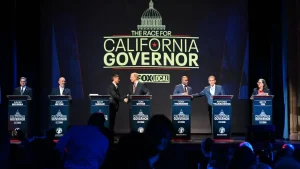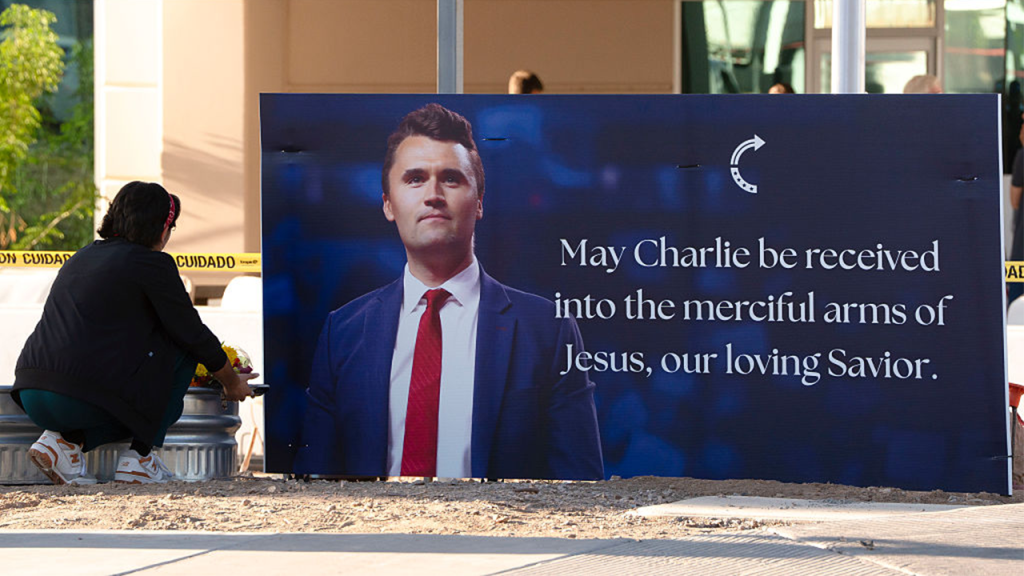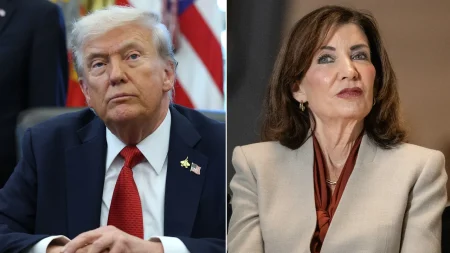A Nation Mourns: Reflecting on the Life and Legacy of Charlie Kirk
In a heartbreaking turn of events that has sent ripples across the American political landscape, conservative activist Charlie Kirk, the 31-year-old founder of Turning Point USA, was fatally shot at Utah Valley University on Wednesday afternoon. Kirk, who had become a prominent voice in conservative politics and a champion for youth engagement, was rushed to a hospital in critical condition before tragically succumbing to his injuries. The sudden and violent nature of his death has prompted widespread mourning across the country, transcending political divides as Americans unite to condemn political violence and remember a young man who dedicated his life to his beliefs.
As news of Kirk’s passing spread, communities nationwide organized spontaneous vigils to honor his memory and take a collective stand against violence. Turning Point USA campus chapters, which Kirk had worked tirelessly to establish across American colleges, held gatherings where students who had been inspired by his message came together in grief. In Seattle, Pastor Russell Johnson of The Pursuit church organized a gathering at Westlake Park, describing it as “a time of prayer, worship, and solidarity as we take a stand against the senseless political and religious violence in America.” Similar events unfolded across the country, from a prayer vigil at a church on Capitol Hill announced by Representative Ryan Zinke of Montana to a rosary vigil in Arizona organized by Catholics for Catholics, who poignantly noted, “Charlie was our friend. His family are our neighbors. He attended our Church. We loved him and America loves him too.” Even the New York Yankees observed a moment of silence before their game against the Detroit Tigers, a testament to how Kirk’s influence had extended beyond the realm of politics into broader American culture.
The outpouring of grief came from across the political spectrum, demonstrating how Kirk’s death has momentarily united a deeply divided nation in shared horror at political violence. Former President Donald Trump, who had worked closely with Kirk, shared a heartfelt message: “The Great, and even Legendary, Charlie Kirk, is dead. No one understood or had the Heart of the Youth in the United States of America better than Charlie. He was loved and admired by ALL, especially me, and now, he is no longer with us.” In a demonstration of bipartisan condemnation of violence, California Governor Gavin Newsom, a Democrat, described the attack as “disgusting, vile, and reprehensible,” emphasizing that “In the United States of America, we must reject political violence in EVERY form.” International leaders also joined in mourning, with Israeli Prime Minister Benjamin Netanyahu describing Kirk as “a lion-hearted friend of Israel” who “fought the lies and stood tall for Judeo-Christian civilization.”
What made Kirk’s death particularly poignant was his youth and the future that stretched before him. At just 31, he had already built Turning Point USA into a significant conservative movement focused on engaging young Americans in political discourse. His approach was particularly effective on college campuses, where he worked to create spaces for conservative students to express their views in environments that often leaned progressive. Bruce Pearl, Auburn University’s men’s basketball coach, captured the sentiment of many educators when he extended “condolences to his family and the young people of this country,” noting that “many in our Auburn student body are horrified tonight, you young patriots who love our country like Charlie.” Kirk’s appeal to young conservatives was a defining aspect of his legacy, as he worked to ensure that conservative viewpoints remained part of the conversation among a generation that will shape America’s future.
Beyond his public persona as a political figure, Kirk was a husband and father whose life was cut tragically short. He leaves behind his wife, Erika Lane Frantzve, and two young children who will now grow up without their father. This personal dimension of the tragedy has resonated deeply with Americans across the political spectrum, reminding everyone that behind political figures are human beings with families, dreams, and loved ones. The vigils held nationwide were not just political statements but human expressions of grief for a life ended too soon and sympathy for those left behind. As the Catholics for Catholics group noted in their announcement of a rosary vigil, “It’s time now for us to pray and ask for Our Lady to usher his soul into heaven” – a sentiment that speaks to the deeply personal and spiritual dimensions of this loss.
In the aftermath of Kirk’s death, there has been a palpable desire among many Americans to reflect on the state of political discourse in the country. Calls to “keep the violent rhetoric down” have emerged alongside the mourning, suggesting a collective recognition that words can inflame tensions in ways that may ultimately lead to violence. As the nation processes this tragedy, there seems to be a growing consensus that regardless of political beliefs, violence is never an acceptable means of political expression in a democratic society. Kirk’s legacy, beyond his specific political positions, may ultimately include this moment of national reflection on how Americans engage with those with whom they disagree. As Pastor Johnson’s invitation to prayer included a hope for “our divided nation” to “heal,” there is perhaps an opportunity in this moment of shared grief to recommit to the principles of peaceful discourse that are fundamental to American democracy – a fitting tribute to a young man who, whatever one thought of his views, engaged passionately with the political process throughout his short life.















